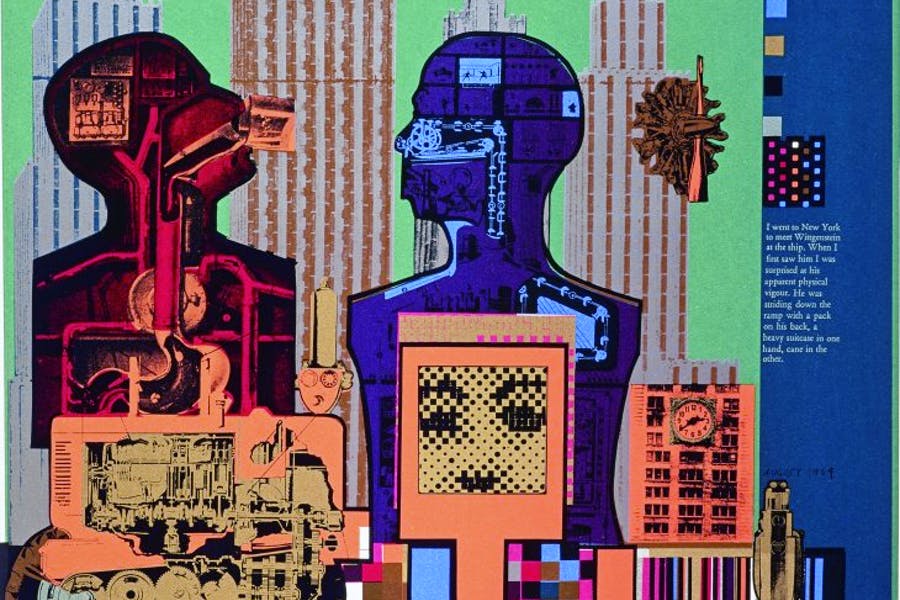Studies show that if you get married and then divorce, your happiness will dip below what it was before you married. One might conclude that pursuing the perfect relationship to fulfil your happiness is, at best, a risky business.
Ninety-five percent of ‘the Feel Good Hormone’ serotonin is produced in your gut, a scientific fact that directly links nutrition to mood and happiness. But most people would find it hard to believe that their guts could have the slightest bearing on their happiness.
Ask people ‘What One Thing Could Make You Happier?’, and you are bound to receive a wide range of replies, none of which are likely to have a connection to the physical body. The answers you receive, will inevitably include at least one, if not more, of the following: a great job; more money; amazing sex; better friends; more free time; looking better; being more intelligent (or more educated); or finding ‘the one’ to form that perfect union.
Since the pursuit of love and the perfect relationship lists highly among the beliefs that society at large holds as to the key to establishing lifelong happiness, let us examine some studies, that link relationships to happiness or joie de vivre.
According to John Gottman of the University of Washington, a world leading researcher on the subject of marriage, married people are a mere ten per cent happier than unmarried. The afterglow of a wedding, with all its pomp and ceremony, lasts approximately two years over which time, there is an increase in overall happiness.
Less depression is also reported within couples who are married. So yes, to some degree, marriage can elevate happiness, at least temporarily. But like most things in life, it is not that straightforward.
If you get married and then divorce, your happiness seems to dip below its level beforehand. Hopeless romantics, don’t lose heart: in time your happiness level will return to what it was before you were married. Non-romantics, however, might conclude that the pursuit of a perfect relationship, to fulfil ultimate happiness, is at best, a flawed enterprise.
The good news for women in their thirties and forties is that the struggle to deal with romantic relationships and societal pressures to conform, by finding the perfect mate and having children tend to disappear.
A sense of contentment and happiness prevails, as the luxury of discovering the true self and recognising personal needs, for the first time perhaps, comes into view. Overall, in both males and females, happiness increases with age, whether attached or not.
In marriage, the mental health of males improves overall. However, compared to women, men deteriorate emotionally and physically with notable increased levels of depression as a result of a separation or divorce. For those considering a long term relationship which excludes the certificate of marriage, the news is not good either – those who live together are less happy and have a higher chance of breaking-up than those who marry.
A number of studies conclude that the arrival of children into a marriage also causes happiness levels within the relationship to decline. But it gets worse when those offspring hatch into teenagers during which time happiness reaches its nadir.
Indeed, in her acclaimed book Flourishing, Maureen Gaffney cites evidence that the happiness levels experienced by mothers when taking care of their children is lower than that which they experience preparing meals or doing shopping.
In this age of cosmetic surgery and digitally-enhanced social media imagery, it is tempting to believe that a beautiful body and a perfect face would greatly increase ones happiness. Oh to be younger, slimmer, more attractive, to rid ourselves of that extra ten pounds, increase bust or butt size, harvest more hair follicles, remove wrinkles, turn back the clock, a nip and a tuck, some suction there, a syringe here. Sure what would be the harm?
Surely then, true happiness would cease to evade us so cruelly if we were only more beautiful? Not so. Whilst there is a slight correlation between a more attractive appearance and increased happiness levels, appearance only accounts if you manage to attract more partners and friends: the mirror is no use.
There is one area of life that is guaranteed to increase happiness, without exception. People who have five or more close friends are sixty percent happier than those who do not. Friendships actually bring more happiness than family, mostly because they are free from the duties, obligations and expectations that many family bonds involve.
The factors that make it easier to form new friendships include: ease with strangers; getting involved in social activities; team sports; and being socially active in general.
Yet again it is not that simple. Unsupportive friendships can have the opposite effect. Choose wisely. Your friendships have a major influence on your happiness levels, so be open to new ones. Cut away old ties that no longer serve your emotional needs. Leave behind friendships that are unreliable, destructive or negative.
Notice how you feel around the people you consider friends. If the answer is positive, you are on to a winner. Cherish and nurture those relationships because they have the potential to bring a major increase in happiness, often greater than any other external factor, aside maybe from gut health, which is the subject of my forthcoming book Lets Talk About Happiness – The Ultimate Guide to Gut Health in line with the launch of the Vitality Centre on Grafton Street, a clinic which offers overall body wellness, starting with the gut.
Health and mood have a definite effect on our overall levels of happiness. And what is more, these two things are profoundly linked to your physical body, or to your gut to be more precise, through one very important hormone.
That hormone is serotonin, referred to previously as ‘the Feel Good Hormone’, because it relates directly to how happy you feel. During bouts of depression it drops. Now here comes the clincher. Ninety-five percent of serotonin is produced in your gut. That is why anti-depressants are used to treat Irritable Bowel Syndrome (IBS). These drugs boost serotonin production, not in your brain but in your gut, where the effect is to lift your mood.
Relief from both depression and bowel problems are often achieved. That is because an increase or decrease in serotonin in your gut (or bowels if you prefer) caused by impaction or other gut related issues can lower your mood and vice versa.
A game changing monument of research arrived on bookshelves in 1999 called The Second Brain by Dr Michael Gershon, who devoted his career to understanding the bowel (the stomach, oesophagus, small intestine, and colon) collectively referred to as the gut.
Most people rarely ponder the colon, that five foot tube of colon, the importance of which has tended to be overlooked by the medical profession, and society in general to the point that IBS was considered a problem of the mind, before Dr Michael Gershon shone his light on the powerful connection between the gut and brain, affecting our serotonin levels and therefore, happiness.
To conclude, to any reader who searches for happiness through the pursuit of a perfect relationship, reduce your efforts. Increase your investment in friendships of value and look inward, but not only to the mind but also to the bowel or gut, for there may lie the treasure that you seek.




